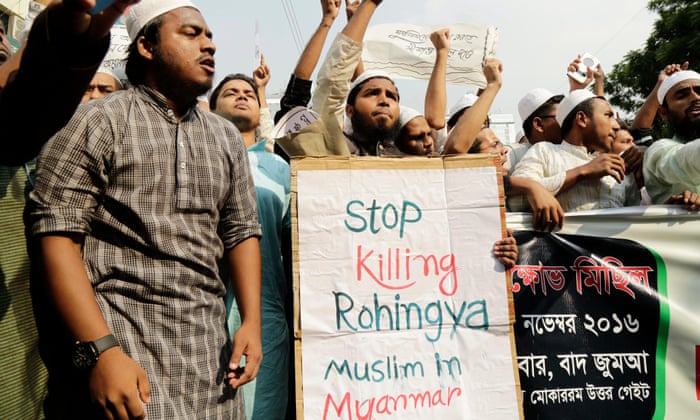I am very saddened and with deep sorrow to learn about the demise of a great Islamic scholar as well as a preacher of the most authentic book of hadith Sahih Bukhari, Maulana Abdul Haq Azami. He has been preaching at the world’s most prominent Islamic seminary Darul Uloom Deoband for a long time. As a matter of fact, Darul Uloom Deoband, in the sub-continent, is the largest institution for the dissemination and propagation of Islam and the biggest headspring of education in the Islamic sciences. He passed away today in his house at Deoband at the age of 88 years old. He has left for his heavenly abode. In fact, Darul Uloom Deoband suffered a bereavement and personal loss due to his death. We pray to Allah Almighty to give Deoband enough strength and courage to bear this irreparable loss. His great deeds done for Muslim Ummah and the Madrasa shall always remain alive. He has made a valuable and reliable contribution to the cause of the preservation of the Islamic way of life in India and elsewhere.
Indeed, in a palpable term, he is the true inheritor of the intellectual and spiritual legacy of Imam Rabbani Mujaddid Alf-Sani(r.a). He has an unbounded and heartfelt love for Allah and His Prophet Muhammad(Peace be upon him). He has been a source of much inspiration and motivation among his students and followers both in theoretical and practical matters. He was a pragmatist, down to earth, amicable and friendly towards both his enemy and follow mate. Moreover, he was a man of constructive action, rational and scientific outlook and a tolerant attitude during his preaching. He always propagated and disseminated the truth in the light of the Book of Allah and the Sunnah(teachings and practices of Prophet peace be upon him). Because of the that Allah has given him extraordinary knowledge of Hadith, as well as Fiqh. As a result of this,he dented a big blow to heretical movement and deviant sects.
There is a need to be cognizant of the fact that Islamic scholars have always been playing a crucial role in the teaching of the Divine Book of Allah, The Quran, and the Sunnah of His Prophet as well. They have always been endeavoring to keep the Islamic belief, norms and faith in its original form and to preserve the tenets of Islam, in addition to inculcating a spirit of tolerance among his students and followers. They are the chosen people of Allah, Allah has chosen them for his work(spreading the truth and peace of religion i.e., #Islam). It will be day of judgment, when the Ashab As-Suffa will be stood there, then Allah will ask "tell me what did you bring?" at that time these students(Preacher and propagator of Islam) will be standing as well. These students will say that Allah in knowledge and practice we were not able to follow them(God conscious and pious persons in Islam) as they should have been followed, but O Allah we tried to follow their footsteps.
May Allah give his ultimate peace and grant him a top layer of paradise.
Indeed, in a palpable term, he is the true inheritor of the intellectual and spiritual legacy of Imam Rabbani Mujaddid Alf-Sani(r.a). He has an unbounded and heartfelt love for Allah and His Prophet Muhammad(Peace be upon him). He has been a source of much inspiration and motivation among his students and followers both in theoretical and practical matters. He was a pragmatist, down to earth, amicable and friendly towards both his enemy and follow mate. Moreover, he was a man of constructive action, rational and scientific outlook and a tolerant attitude during his preaching. He always propagated and disseminated the truth in the light of the Book of Allah and the Sunnah(teachings and practices of Prophet peace be upon him). Because of the that Allah has given him extraordinary knowledge of Hadith, as well as Fiqh. As a result of this,he dented a big blow to heretical movement and deviant sects.
There is a need to be cognizant of the fact that Islamic scholars have always been playing a crucial role in the teaching of the Divine Book of Allah, The Quran, and the Sunnah of His Prophet as well. They have always been endeavoring to keep the Islamic belief, norms and faith in its original form and to preserve the tenets of Islam, in addition to inculcating a spirit of tolerance among his students and followers. They are the chosen people of Allah, Allah has chosen them for his work(spreading the truth and peace of religion i.e., #Islam). It will be day of judgment, when the Ashab As-Suffa will be stood there, then Allah will ask "tell me what did you bring?" at that time these students(Preacher and propagator of Islam) will be standing as well. These students will say that Allah in knowledge and practice we were not able to follow them(God conscious and pious persons in Islam) as they should have been followed, but O Allah we tried to follow their footsteps.
May Allah give his ultimate peace and grant him a top layer of paradise.



